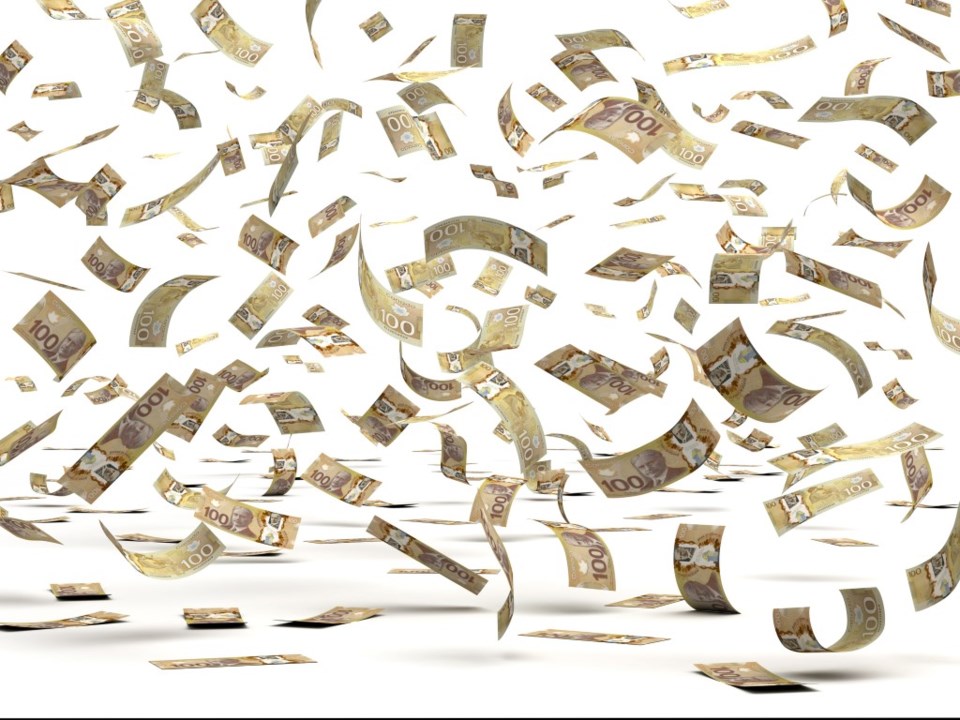The rising cost of living isn’t an act of God or nature. Politicians are making it worse every day. You can find politicians who are making life more affordable for taxpayers. But those politicians don’t live in Ottawa.
Ottawa is raising gas taxes, payroll taxes and even alcohol taxes. Meanwhile, 51 other national governments are providing relief, according to a Canadian Taxpayers Federation . That includes more than half of the G7 and G20 countries. Two-thirds of the countries in the Organization for Economic Co-operation and Development are also cutting taxes.
Today, Prime Minister Justin Trudeau could choose to save a family about $20 every time they fuel up their minivan by cutting federal gas taxes.
But Trudeau is deliberately choosing higher pump prices. His carbon tax adds about 11 cents per litre to the price of gas. He’s planning to raise it to nearly 40 cents by 2030. Even after the rebates, the federal carbon tax costs the average household at least $299 this year, according to the Parliamentary Budget Officer.
The feds are also bringing in a second carbon tax through fuel regulations that will take effect next July. The government’s own analysis shows the tax will be especially painful for “lower and middle-income households.” It will also harm Canadians living in “energy poverty,” “single mothers” and “seniors living on fixed incomes.”
The CTF found 25 countries that are choosing to provide relief at the pumps. Australia cut its gas tax in half. The United Kingdom announced billions of dollars of fuel tax relief. The Netherlands cut its gas tax by 17 cents per litre. Â鶹ÊÓƵ Korea cut its taxes at the pumps by 30 per cent. India cut gas taxes to “keep inflation low, thus helping the poor and middle classes.”
Provinces are also cutting taxes. Statistics Canada noted that in July “gasoline prices fell the most in Ontario (-12.2 per cent), where the provincial government temporarily lowered the gasoline tax.”
“While the inflation rate nationally rose in April, the rate declined in Alberta,” said University of Calgary economist Trevor Tombe in May. “Falling gasoline prices because of the tax holiday is the reason.”
Trudeau is also choosing to take more money from Canadians’ pay.
If you make $65,000 this year, the federal government is taking nearly $4,500 directly from your pay through Canada Pension Plan and employment insurance taxes. Your employer must also cough up an extra $4,800.
This year, the annual payroll tax bill, including employer and employee payments, for each middle-class worker increased by $818. Over the decade, it increased by $2,435.
Our peers are choosing to reduce income taxes.
“We believe high taxes reduce incentives to work,” said the U.K.’s finance minister while announcing payroll tax relief.
“By putting more money in their pockets, families will keep more of what they earn, allowing them to spend more on what they need,” said the Australian government, which is providing “permanent tax cuts of up to $2,565 for individuals in 2022‑23.”
Eighteen countries including Belgium, Germany and Norway chose to save their citizens money by reducing consumption taxes. The U.K. is even providing liquor tax relief.
But on this side of the pond, Trudeau is choosing to increase the taxes Canadians pay every time they buy their favourite bottle of wine or case of beer. Taxes in Canada now make up about half of the price of beer, 65 per cent of the price of wine and more than three quarters of the price of spirits.
The CTF identified 11 national governments that cut business taxes. Our federal government isn’t one of them, despite Canada ranking in the bottom half of OECD countries on business tax competitiveness.
Other countries are choosing to make life more affordable for their citizens. Politicians in Ottawa could too. They just need to make the right choice to spend less and cut taxes so Canadians can keep more of our money.
Franco Terrazzano is the Federal Director of the Canadian Taxpayers Federation




